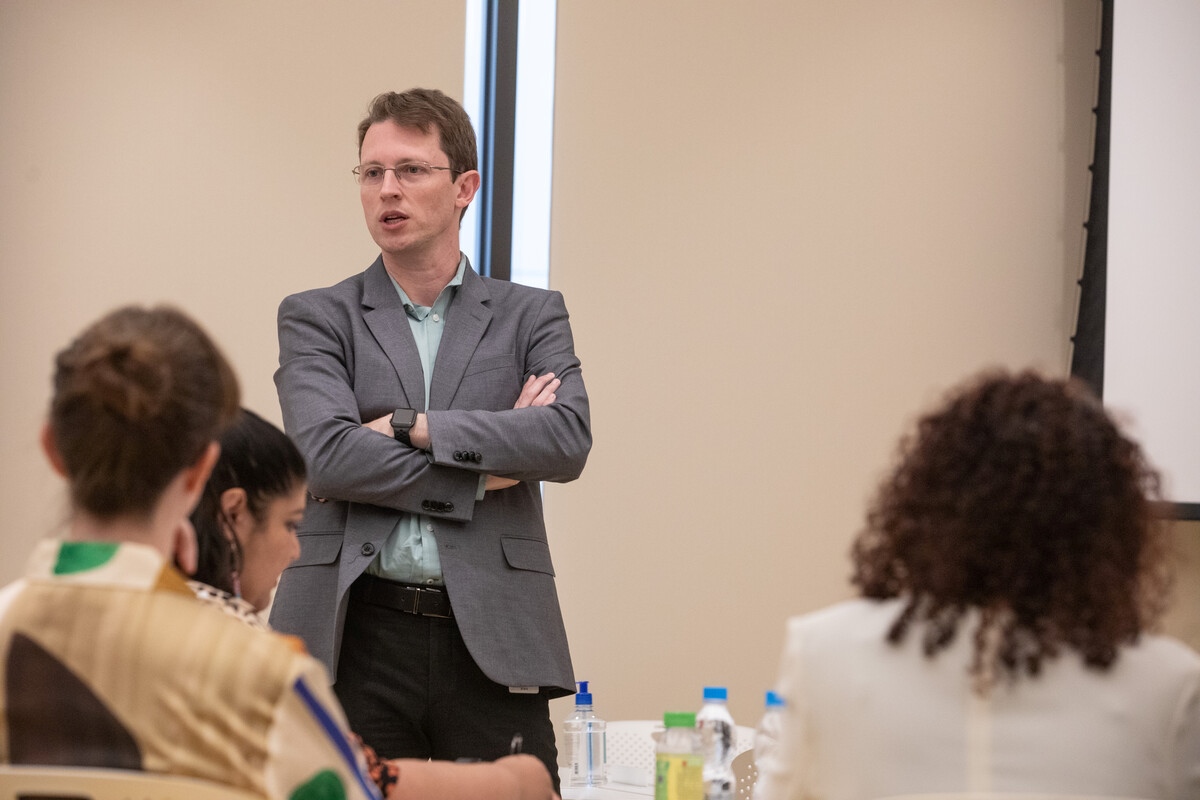 #Careers
#Careers
How to establish a good relationship with supervisees
Cultivating good working relationships with students helps create an environment of mutual respect, reduces dropout rates, and improves research quality
 By holding regular meetings, supervisors can monitor the progress of their students, keeping them engaged and motivated | Image: Shutterstock
By holding regular meetings, supervisors can monitor the progress of their students, keeping them engaged and motivated | Image: Shutterstock
Supervisors have a strong influence on postgraduate students. More than just supervising their work, they play a formative role, helping students develop autonomy, critical thinking skills, and scientific ethics.
Dialogue and trust, anchored in well-defined goals, are essential to a smooth supervision process, allowing the two parties to face challenges collaboratively.
It is thus essential that supervisors and supervisees establish a good working relationship from the outset. An environment of mutual respect tends to increase student well-being, reducing dropout rates and improving research quality.
Conflict and poorly managed relationships often demotivate supervised students, which can impact deadlines and even results.
Creating healthy bonds based on open communication and shared objectives is one of the best ways to help students become good researchers capable of producing socially important knowledge.
Below are some best practices for supervisors seeking to cultivate a positive and productive relationship with their supervisees.
1. Set clear expectations: It is essential to define objectives, deadlines, and responsibilities from the outset—it helps the supervisor and the supervisee to align expectations and avoid misunderstandings.
This includes understanding the student’s research goals, helping them formulate good questions, identifying gaps in existing knowledge, organizing the study around these questions, setting submission deadlines for each stage of the work, and planning research progression in weekly meetings.
2. Constant monitoring: Holding regular meetings allows supervisors to monitor their students’ progress, keeping them engaged and motivated, as well as giving them a safe space to talk about their achievements and challenges.
Frequent meetings and accessible communication channels foster an environment of trust and facilitate problem-solving.
3. Flexibility: Although the mentoring process requires a structured approach, flexibility is fundamental. Unexpected obstacles may arise and many students are still developing their skills as researchers. Adjusting deadlines and goals according to their needs makes the process more welcoming and helps prevent overload.
4. Offer constructive feedback: Giving specific and balanced feedback on a student’s progress encourages their academic and personal development. Try to provide constructive and applicable guidance, highlighting their strengths and suggesting where they can improve.
Break feedback down into short, focused comments that address specific parts of the student’s project. This makes feedback easier to digest and ensures supervisees do not feel overwhelmed.
5. Encourage independence: It is important for supervisors to find a balance between offering guidance and fostering independence in their students. Encouraging them to make their own decisions and to develop intellectual autonomy is essential to their training as researchers. Allow them to make some choices on their own, offering support when necessary.
6. Demonstrate empathy and emotional support: Recognizing the challenges faced by students and supporting them can help improve their well-being and motivation.
7. Promote professional development: Supervisors should encourage networking opportunities, participation in conferences, and other activities that broaden the career prospects of their supervisees.
The role of the supervisor is fundamental to creating an open and collaborative environment. Being approachable and welcoming helps students feel more comfortable sharing ideas, asking questions, and participating in productive conversations.
This relationship can be developed through quick meetings via zoom or email, or face-to-face during office hours.
When students feel supported, motivated, and challenged to think critically and independently, the research process is more efficient and results tend to reflect greater depth, originality, and impact.
Find out more:
– An article published in the American Journal of Human Biology in 2021 provides tips on how to successfully navigate the journey between supervisors and supervisees.
– An article published in the journal Frontiers in Psychology in 2024 examines how different types of mentoring influence the quality of the relationship between supervisors and supervisees.
*
This article may be republished online under the CC-BY-NC-ND Creative Commons license.
The text must not be edited and the author(s) and source (Science Arena) must be credited.
Careers
 #Careers
#Careers
 #Careers
#Careers
 #Careers
#Careers
